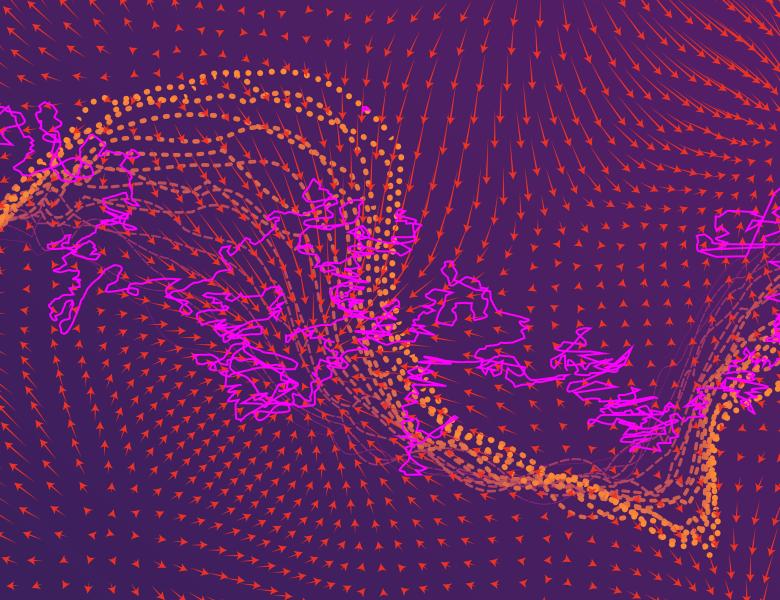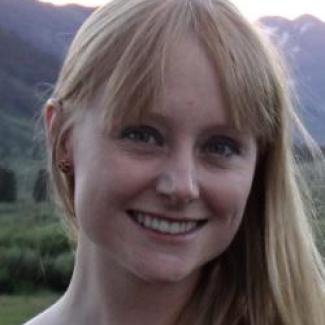
Over the past two years, a stream of breakthrough works analyzing the continuum limits of sampling and optimization algorithms have solidified the importance of PDEs for both understanding existing algorithms and developing new ones. On one hand, the PDE perspective brings with it a mature theory of numerical analysis, leading to new discretizations of existing algorithms. Due to historical connections with physics, PDE also can provide a range of new energy landscapes on which to build algorithms. On the other hand, in the PDE community, there is an acute need for improved algorithms in numerical simulations — indeed, efficient sampling is essential to particle methods and recent advances in optimization have enabled the discovery of new numerical methods built upon a PDE’s variational structure. The goal of this workshop is to nurture the development of a continuum mathematical framework that can unite various classes of discrete algorithms in PDEs, sampling, and optimization.
This event will be held in-person and virtually.
Given current public health directives from state, local, and university authorities, all participants in Simons Institute events must be prepared to demonstrate proof of full vaccination: a vaccination card or photo of the card along with a valid photo ID, or a green Campus Access Badge via the UC Berkeley Mobile app (additional details regarding proof of vaccination can be found here).
If you require accommodation for communication, please contact our Access Coordinator at simonsevents@berkeley.edu with as much advance notice as possible.
Krishnakumar Balasubramanian (UC Davis), Andrea Bertozzi (UCLA), Jeff Calder (University of Minnesota), Guillaume Carlier (Université Paris Dauphine - CEREMADE), Jose Antonio Carrillo de la Plata (University of Oxford), Kathleen Craig (UC Santa Barbara), Simone Di Marino (Università di Genova and Massachusetts Institute of Technology), Jelena Diakonikolas (University of Wisconsin-Madison), Paromita Dubey (Stanford), Alain Durmus (ENS Paris-Saclay), Murat Erdogdu (University of Toronto), Antonio Esposito (Friedrich-Alexander University Erlangen-Nürnberg), Alessio Figalli (ETH), William Franks (MIT), Wilfrid Gangbo (UCLA), Nicolas Garcia Trillos (University of Wisconsin Madison), Tryphon Georgiou (University of California, Irvine), Augusto Gerolin (Vrije Universiteit Amsterdam), Franca Hoffmann (University of Bonn), Mikaela Iacobelli (ETH), Inwon Kim (UCLA), Anna Korba (ENSAE Paris), Dohyun Kwon (University of Wisconsin Madison), Thibaut Le Gouic (Ecole Centrale), Jianfeng Lu (Duke University), Léonard Monsaingeon (Institute Elie Cartan of Lorraine), Andrea Montanari (Stanford University), Eric Moulines (Ecole Polytechnique), Quentin Mérigot (Paris-Saclay university), Vidyut Naware (PayPal), Braxton Osting (University of Utah), Felix Otto (Max Planck Institute for Mathematics in the Sciences), Vianney Perchet (Université Paris Diderot - Paris 7), Lorenzo Portinale (University of Bonn), Emanuela Radici (Ecole Polytechnique Federale de Lausanne (EPFL)), Philippe Rigollet (MIT), Andrej Risteski (Carnegie Mellon University), Lars Ruthotto (Emory University), Giuseppe Savaré (Bocconi University), Dejan Slepcev (Carnegie Mellon University), Sui Tang (UCSB), Prasad Tetali (Georgia Institute of Technology), Matthew Thorpe (University of Manchester), Olga Turanova (Michigan State University), Nisheeth Vishnoi (Yale University), Jiangping Wang (PayPal), Lihan Wang (Carnegie Mellon University), Li Wang (University of Minnesota), Andre Wibisono (Yale University), Stephan Wojtowytsch (Princeton University), Stephen Wright (University of Wisconsin-Madison), Lexing Ying (Stanford University), Gerard Jan van den Brand (KTH Royal Institute of Technology)




